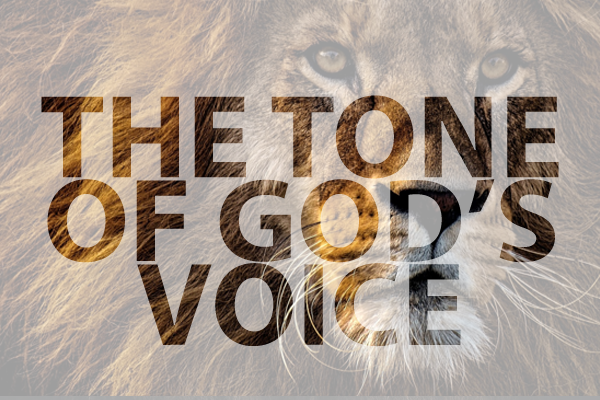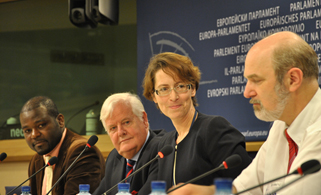By Graham Coyle, Chairman of the European Educators’ Christian Association
“Go out and stand before me on the mountain,” the Lord told him. And as Elijah stood there, the Lord passed by, and a mighty windstorm hit the mountain. It was such a terrible blast that the rocks were torn loose, but the Lord was not in the wind. After the wind there was an earthquake, but the Lord was not in the earthquake. And after the earthquake there was a fire, but the Lord was not in the fire. And after the fire there was the sound of a gentle whisper. When Elijah heard it, he wrapped his face in his cloak and went out and stood at the entrance of the cave. (1 Kings 19:11-13)
Have you ever noticed God speaking to you in different tones? Think about it. We use different tones of communication all the time, especially when teaching. When coaching sports I’m generally noisy and enthusiastic, even to just one individual. I just love celebrating their victories and calling them up to greater heights. When teaching religious education or giving feedback and encouragement to a pupil, my tone varies greatly but it is frequently quiet and warm (at least I hope so). Occasionally of course, I need to speak in a more direct way, but hopefully always with love, honour and respect.
Tone enables me to convey so much more than simply the meaning of the words. It gives context to the communication.
If that’s the way God has created us, doesn’t it make sense it would in some way reveal something about Him and the way He desires to speak with us?
Elijah had just had an incredible power encounter with God, and Baal’s prophets definitely came off badly. He was on top of the world, or at least Mount Carmel. The false god Baal was exposed as a fraud, Ahab and Jezebel were humiliated and the long drought of God’s judgement was coming to an end. You may be familiar the overall story, if not you can read it in 1 Kings 18. What follows is in essence, Elijah allows fear to creep in and dominate his heart and mind; he runs away in self-protection.
Whilst hiding in a mountain cave, the Lord says, ‘Hey Elijah, I want to say something to you.’ As Elijah waits at the cave entrance there are three powerful and dramatic manifestations, wind, earthquake and fire. All of which were ways God could choose, and indeed has chosen at times, to say something, but in the end God spoke to Elijah as the ‘gentle whisper’.
I believe Elijah recognised God’s voice because of the content and the context.
The Lord chooses to reveal himself as Father, Son and Spirit. He speaks to us as we read His word, as we enjoy His creation, through music, in prayer, through others and so on, but my experience is He so often has a different tone or manner.
For example, in times of deep crisis, such as when my wife died, He was the tender Father I needed right by my side. The things He spoke to me then came out of His deep Fatherly love. In different circumstances, such as a conversation with someone, I often sense Him as Spirit showing me something about that person or their situation. This has a different emotional feel to it, not remote or detached. It’s more appropriate to their emotions than mine. Sometimes, in circumstances where I’m considering a choice, especially if it’s a bit unusual, I’ve sensed Him respond as Jesus and just laugh at my thought process, not in derision, but out of delight.
Some of this may sound a bit fanciful to you, but the more I reflect on this, the more I’m convinced our Lord’s desire is for us to know Him as well as those He walked with physically. They knew His ways of speaking, they heard the Father speaking through Him and they were promised the Spirit would do the same. Why shouldn’t this be true for us?
I believe we can have a deeper, richer and more personal knowledge of God if we will take the time to draw close and learn to recognise the nuanced inflective of His communication. Ask yourself, how does a parent speak to their child? How does your Father speak to you?
“See how very much our Father loves us, for he calls us his children, and that is what we are!” (1 Jn 3:1)
This article is part of EurECA’s series of weekly blogs.












